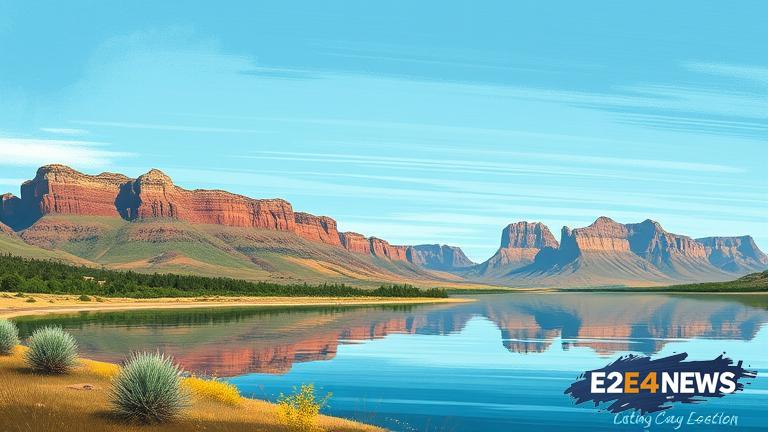Utah’s lakes are a treasured resource, supporting a diverse range of plant and animal life. The state is home to several large lakes, including the Great Salt Lake, Utah Lake, and Bear Lake, each with its unique characteristics and attractions. The Great Salt Lake, for example, is the largest natural lake west of the Mississippi River and a crucial stopover for migratory birds. Utah Lake, on the other hand, is a popular spot for fishing and boating, with over 20 species of fish calling the lake home. Bear Lake, located on the Utah-Idaho border, is known for its stunning scenery and crystal-clear waters. In addition to these larger lakes, Utah is also home to numerous smaller lakes and reservoirs, many of which are nestled in the state’s beautiful mountains and forests. These lakes offer a range of recreational activities, including fishing, boating, swimming, and hiking. For those interested in wildlife, Utah’s lakes are a haven for birdwatching, with over 200 species of birds documented in the state. The lakes are also home to a variety of fish, including trout, bass, and walleye, making them a popular destination for anglers. However, Utah’s lakes are not without their challenges, including invasive species, pollution, and climate change. Efforts are being made to protect and preserve these vital resources, including habitat restoration and conservation initiatives. Despite these challenges, Utah’s lakes remain a beloved and integral part of the state’s natural heritage. Whether you’re interested in outdoor recreation, wildlife viewing, or simply taking in the breathtaking scenery, Utah’s lakes have something to offer. With their unique blend of natural beauty and recreational opportunities, it’s no wonder that Utah’s lakes are a source of pride for residents and a major draw for tourists. As the state continues to grow and develop, it’s essential that we prioritize the protection and preservation of these incredible resources. By doing so, we can ensure that Utah’s lakes remain a thriving and vibrant part of the state’s ecosystem for generations to come. Furthermore, the importance of Utah’s lakes extends beyond their recreational and ecological value, as they also play a critical role in the state’s economy and cultural identity. In conclusion, Utah’s lakes are a true treasure, and their preservation is essential for maintaining the state’s natural beauty, supporting its wildlife, and providing opportunities for outdoor recreation.
